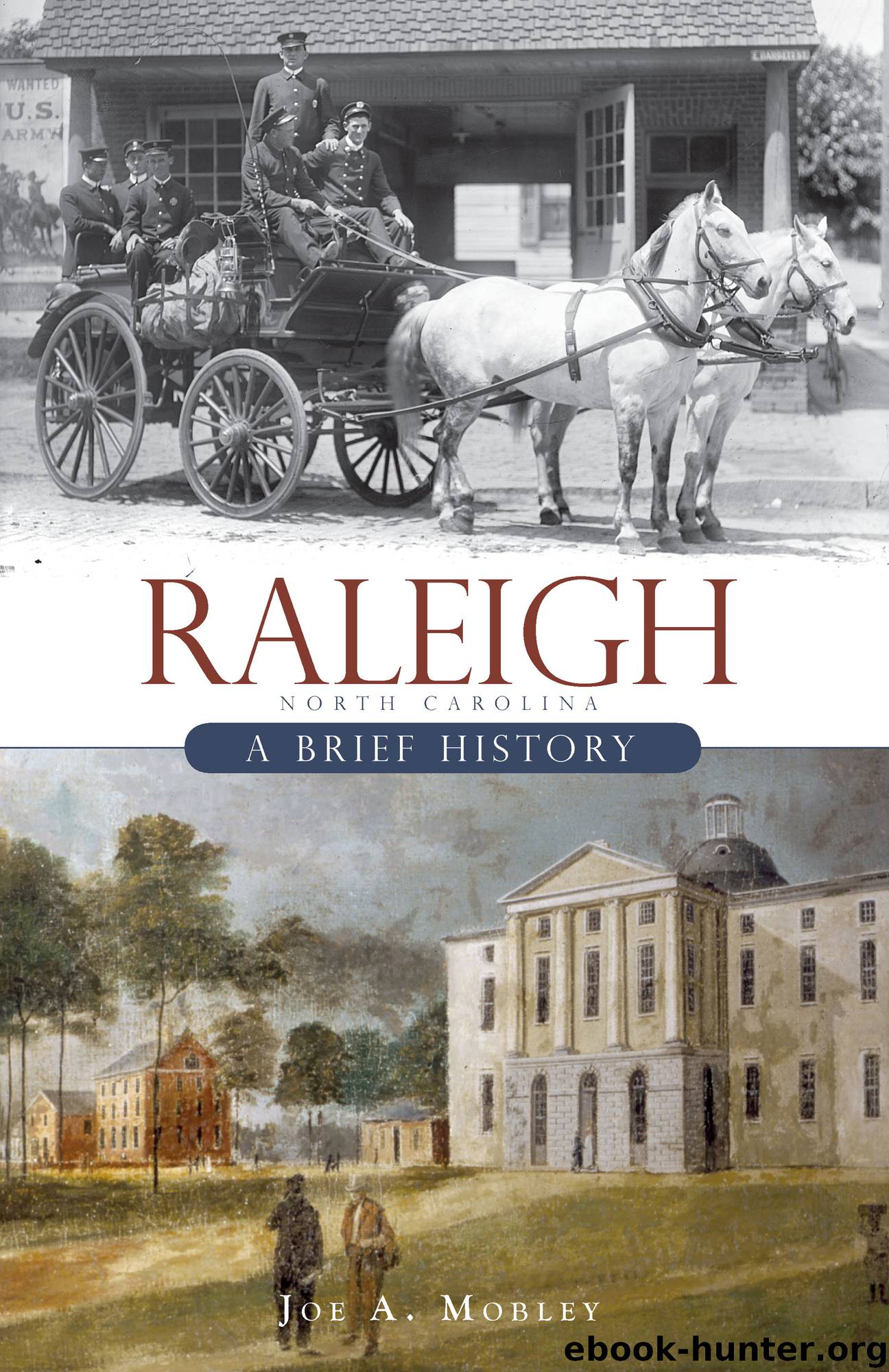Raleigh, North Carolina by Joe A. Mobley

Author:Joe A. Mobley
Language: eng
Format: epub
Published: 2019-03-15T16:00:00+00:00
The Eagle Hotel, later named the Guion Hotel and then the National Hotel, eventually became offices of the Department of Agriculture.
Located in the heart of Raleigh, the State House served as more than the center of state government. It became a hub of community and social life in early Raleigh. Balls, Fourth of July celebrations, plays, lectures, concerts, and other public events took place in the building. Because no church was built in Raleigh for some time, religious services also were conducted there.
Standing conveniently on the west side of Fayetteville Street, the Wake County Courthouse also hosted social and civic functions when not in use for court sessions or county business. The clerk of court could rent the rooms for meetings, theatrical performances, church services, lectures, and other entertainments and gatherings attended by early Raleighites. The first town commissioners met at the courthouse, and the federal circuit court convened in the building.
The Wake County Court originally took responsibility for maintaining law and order and for the upkeep of the streets in Raleigh. In 1793, the county court appointed patrollers and a constable as law enforcement officers. It required the persons living near residential streets to maintain them, and it appointed an overseer of the main streets to ensure their upkeep. For many years, though, work and repair remained erratic.
Responsibility for the administration and governing of Raleigh quickly passed from county authorities. When the General Assembly first met in December 1794, it approved a bill “for the regulation of the city of Raleigh.” That act provided for the appointment of seven commissioners to assume the authority for street maintenance and the selection of a constable and city watch, or patrollers. The original seven commissioners—who were responsible to the legislature—served for life or until they resigned. The freemen of Raleigh could then elect their replacements. The commissioners appointed a treasurer from among themselves and hired a clerk to assist him. They levied city taxes and appointed a collector for those fees. Every property owner in Raleigh had to list his property each year. All the commissioners were required to own or lease a lot containing a house within the city limits.
The selection of Raleigh’s first mayor fell to the commissioners. In March 1795, they elected the first “Intendant of Police,” whose duties were “to enforce obedience to the laws and punish offenders.” The intendant of police prevailed as Raleigh’s chief executive until the term mayor was adopted in 1857. He was elected from among the town commissioners and presided over their meetings. The first commissioner to serve as Raleigh’s intendant of police is believed to have been John Haywood (also the state treasurer), who filled that office from 1795 until probably January 1803, when the voters of Raleigh held their first popular election for town officials.
In 1803, the General Assembly issued a new charter granting the town of Raleigh the authority to govern itself subject to state law. The voters of Raleigh could then elect their intendant of police and seven commissioners every year.
Download
This site does not store any files on its server. We only index and link to content provided by other sites. Please contact the content providers to delete copyright contents if any and email us, we'll remove relevant links or contents immediately.
| Africa | Americas |
| Arctic & Antarctica | Asia |
| Australia & Oceania | Europe |
| Middle East | Russia |
| United States | World |
| Ancient Civilizations | Military |
| Historical Study & Educational Resources |
Hitman by Howie Carr(5099)
Liar's Poker by Michael Lewis(3452)
Into Thin Air by Jon Krakauer(3402)
Tuesdays With Morrie by Mitch Albom(2766)
Into the Wild by Jon Krakauer(2635)
The Diamond Cutter by Geshe Michael Roach(2065)
My Dark Places by James Ellroy(1931)
Columbine by Dave Cullen(1870)
Helter Skelter: The True Story of the Manson Murders by Vincent Bugliosi & Curt Gentry(1729)
Extraordinary, Ordinary People by Condoleezza Rice(1504)
Everything in Its Place by Oliver Sacks(1488)
Pilgrim at Tinker Creek by Annie Dillard(1436)
Into the wild by Jon Krakauer(1434)
You Can't Touch My Hair by Phoebe Robinson(1408)
The Girls: Sappho Goes to Hollywood by Diana McLellan(1320)
Dark Towers by David Enrich(1261)
Betrayal by Gregg Olsen(1258)
Call Sign Chaos by Jim Mattis & Bing West(1236)
Remedy and Reaction by Paul Starr(1204)
